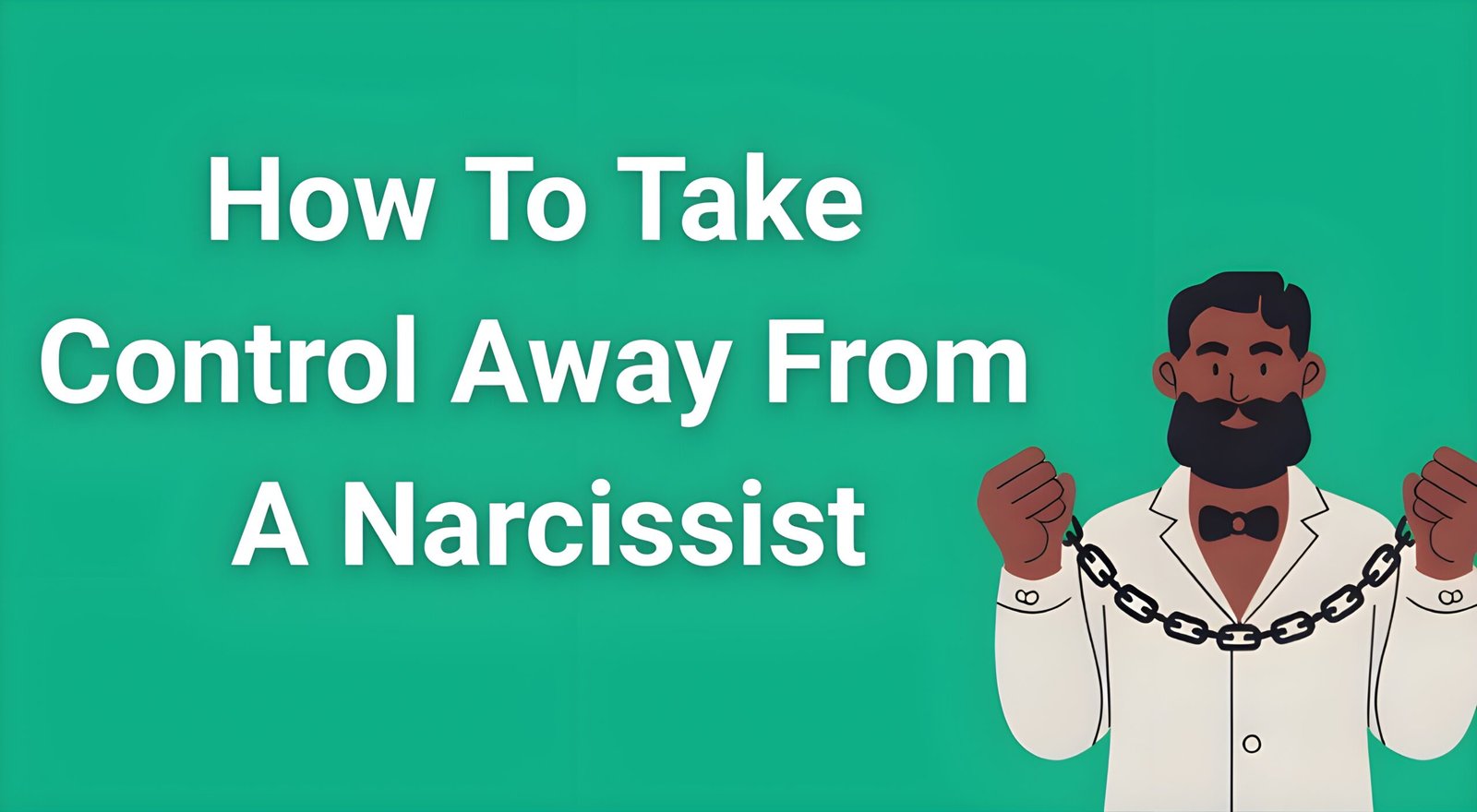That gut-wrenching moment when you realize someone has been systematically dismantling your reality, your confidence, and your sense of self is both terrifying and liberating. If you’re reading this, you’ve likely reached a crucial turning point where you’re ready to learn how to take control away from a narcissist who has been manipulating your life. The path to reclaiming your power isn’t just about understanding their tactics – it’s about implementing specific strategies that will shift the dynamic permanently in your favor.
- Understanding the Foundation of Narcissistic Control
- The Psychology Behind Power Dynamics
- Recognizing the Moment You’re Ready for Change
- Strategic Approach One: Establishing Unshakeable Boundaries
- Strategic Approach Two: The Gray Rock Method Mastery
- Strategic Approach Three: Information Diet and Communication Control
- Strategic Approach Four: Building External Support Networks
- Strategic Approach Five: Financial Independence and Security
- Strategic Approach Six: Emotional Detachment and Self-Validation
- Strategic Approach Seven: Creating Safety Plans and Exit Strategies
- Understanding Narcissistic Escalation Patterns
- When Professional Help Becomes Essential
- The Neurological Journey of Recovery
- Preparing for Life After Narcissistic Control
- Special Considerations for Different Relationships
- Building Long-Term Immunity to Manipulation
- Frequently Asked Questions
- Conclusion: Your Freedom Begins With Understanding
Understanding how to take control away from a narcissist requires first recognizing that their power over you isn’t magical or insurmountable. It’s built on predictable psychological patterns that can be disrupted once you understand the underlying mechanics of narcissistic control. The confusion you feel isn’t accidental – it’s the result of deliberate manipulation designed to keep you dependent and compliant.
Understanding the Foundation of Narcissistic Control
Before diving into specific strategies, it’s essential to understand why narcissists seek control in the first place. Narcissistic individuals operate from a place of deep insecurity masked by grandiose behavior. Their need to control others stems from their inability to regulate their own emotions and self-worth internally. They create elaborate systems of manipulation because their fragile sense of self depends entirely on external validation and dominance over others.
The control mechanisms narcissists use are sophisticated and often invisible to their victims. Gaslighting makes you question your own memories and perceptions. Love bombing followed by devaluation creates an addictive cycle that keeps you chasing their approval. Financial manipulation, social isolation, and emotional blackmail all serve the same purpose: maintaining their position of power while keeping you in a state of confusion and dependency.
What makes narcissistic control particularly insidious is its gradual nature. Like the metaphor of the frog in slowly boiling water, the boundaries erosion happens incrementally until you find yourself in a situation you never would have accepted initially. This gradual process is why many victims struggle to identify what’s happening until the damage is already significant.
The Psychology Behind Power Dynamics
To effectively take control away from a narcissist, you need to understand the psychological principles that govern these toxic relationships. Narcissists operate on what psychologists call a “zero-sum” mindset – they believe that for them to win, you must lose. This mentality drives their constant need to diminish others to elevate themselves.
Their control tactics work because they exploit normal human psychological tendencies. Our desire for harmony, our tendency to give others the benefit of the doubt, and our natural empathy all become weapons in their hands. They’ve learned to identify and manipulate these qualities, turning your strengths against you.
The trauma bonding that develops in narcissistic relationships creates a biochemical addiction similar to substance dependency. The intermittent reinforcement pattern they create – periods of cruelty followed by moments of kindness – triggers the same neurological pathways as gambling addiction. This is why leaving feels so difficult even when you intellectually understand the relationship is harmful.
Recognizing the Moment You’re Ready for Change
There comes a pivotal moment in every victim’s journey when the pain of staying becomes greater than the fear of leaving. This psychological shift is crucial because it provides the motivation necessary to implement the challenging strategies required to reclaim your power. You might recognize this moment by the increasing frequency of thoughts like “this isn’t normal” or “I can’t continue living this way.”
The readiness for change often coincides with what therapists call “coming out of the fog” – a period where the gaslighting effects begin to wear off and you start trusting your own perceptions again. This might happen gradually or suddenly, but it’s characterized by a growing certainty that the problem isn’t with you, but with the dynamic itself.
During this phase, you might find yourself secretly researching narcissistic abuse, reaching out to old friends, or imagining what life could be like without constant criticism and control. These are healthy signs that your psychological immune system is beginning to activate.
Strategic Approach One: Establishing Unshakeable Boundaries
Learning how to take control away from a narcissist begins with establishing boundaries that are both clear and enforceable. However, setting boundaries with a narcissist differs significantly from healthy relationship boundary-setting because narcissists view any limitation on their behavior as a direct attack on their superiority.
Effective boundary-setting with narcissists requires what therapists call “internal boundaries” rather than just external ones. Internal boundaries involve deciding in advance how you will respond to specific behaviors, regardless of their reaction. For example, you might decide that any conversation involving personal attacks will result in you leaving the room immediately, without explanation or negotiation.
The key to successful boundary implementation is consistency and emotional neutrality. Narcissists are experts at reading emotional reactions and will exploit any sign of uncertainty or emotional reactivity. When you enforce a boundary with the same calm consistency as a natural law – like gravity – they begin to understand that their usual manipulation tactics won’t work.
Documentation becomes crucial during this phase. Keep detailed records of boundary violations, not necessarily for legal purposes, but to maintain your own clarity about what’s actually happening. Narcissists excel at rewriting history and making you question whether incidents really occurred or were as serious as you remember.
Strategic Approach Two: The Gray Rock Method Mastery
The gray rock technique represents one of the most effective ways to take control away from a narcissist by removing the emotional reactions they feed on. This strategy involves becoming as uninteresting and unresponsive as possible during interactions, like a gray rock on the ground that attracts no attention.
Implementing gray rock successfully requires practice and preparation. You’ll need to prepare neutral responses to common provocations in advance. Phrases like “I’ll consider that,” “That’s interesting,” or simply “Okay” become your standard responses to attempts at engagement. The goal isn’t to be rude, but to provide no emotional fuel for their manipulation attempts.
The most challenging aspect of gray rock is maintaining it when they escalate their efforts to provoke you. Narcissists will often increase the intensity of their attacks when they sense you’re withdrawing your emotional availability. This extinction burst – similar to what happens when a slot machine stops paying out – can be intense but typically indicates the technique is working.
Success with gray rock often leads to the narcissist eventually losing interest and seeking more responsive targets for their manipulation. While this might involve some initial increase in aggressive behavior as they test your resolve, consistency in your unresponsiveness usually results in them redirecting their attention elsewhere.
Strategic Approach Three: Information Diet and Communication Control
Taking control away from a narcissist often requires severely limiting the information they have access to about your life, thoughts, and plans. Narcissists use personal information as ammunition for future manipulation attempts, so sharing details about your life gives them tools to hurt you later.
An effective information diet means sharing only essential, factual information and avoiding emotional topics entirely. If they ask about your day, “Fine” becomes a complete answer. If they probe for details about your relationships, work, or future plans, neutral responses like “Nothing new” or “Same as usual” prevent them from gathering material for future attacks.
This strategy extends to digital communication as well. Consider limiting their access to your social media, changing passwords they might know, and being cautious about shared technology that might give them insight into your activities or communications with others.
The information diet often reveals the extent of their previous monitoring and control. You might notice increased attempts to gather information through other sources, questioning mutual friends, or trying to access your accounts. These escalations, while uncomfortable, confirm that the strategy is effectively limiting their control mechanisms.
Strategic Approach Four: Building External Support Networks
Isolation is one of the narcissist’s most powerful control tools, so rebuilding connections with supportive people becomes essential to reclaiming your power. This process often requires reaching out to friends or family members you’ve lost touch with due to the narcissist’s influence, which can feel vulnerable and embarrassing.
When reconnecting with your support network, you don’t need to explain everything immediately. Simple statements like “I’ve been going through a difficult time and haven’t been myself” often suffice. Most genuine friends and family members are more understanding and forgiving than you might expect, especially if they’ve witnessed concerning changes in your behavior or availability.
Building new support networks through therapy groups, community organizations, or online communities can also provide validation and practical advice from people who understand your experience. The shared understanding available in narcissistic abuse recovery communities can be particularly valuable because others have faced similar manipulation tactics.
Professional support becomes crucial during this phase. A trauma-informed therapist who understands narcissistic abuse can help you process the complex emotions that arise as you reclaim your power. They can also help you develop personalized strategies for your specific situation and relationship dynamics.
Strategic Approach Five: Financial Independence and Security
Economic control often represents the narcissist’s most concrete power over their victims, making financial independence crucial for long-term freedom. This might involve opening separate bank accounts, rebuilding damaged credit, or developing marketable skills if you’ve been discouraged from working.
The process of financial recovery often requires patience and stealth. If the narcissist currently controls finances, gradual steps toward independence might be necessary to avoid triggering aggressive retaliation. This could mean slowly diverting small amounts to a separate account, building job skills through free online courses, or researching resources available to abuse victims.
Documentation of financial abuse becomes important both for your own clarity and potential legal proceedings. Keep records of denied access to accounts, prevented employment opportunities, or sabotaged financial decisions. This information helps establish patterns of economic control that might be relevant in divorce proceedings or other legal situations.
Consider seeking advice from financial counselors who specialize in abuse situations. Many communities offer free financial planning services for domestic violence survivors, and these professionals understand the unique challenges of rebuilding financial independence after economic abuse.
Strategic Approach Six: Emotional Detachment and Self-Validation
Perhaps the most challenging aspect of learning how to take control away from a narcissist involves developing emotional independence from their approval or disapproval. Years of conditioning have likely made their opinion of you feel crucial to your self-worth, making their criticism devastating and their praise addictive.
Emotional detachment doesn’t mean becoming cold or uncaring. Instead, it means recognizing that their emotional reactions and opinions about you reflect their internal state rather than objective reality about who you are. When they rage, it’s about their loss of control, not about your worth as a person.
Developing internal validation systems requires consciously rebuilding your ability to trust your own perceptions and judgments. This might involve keeping a daily journal where you record your own thoughts and feelings without editing them for potential criticism. Over time, this practice helps rebuild confidence in your own inner voice.
Self-compassion becomes essential during this process. The critical inner voice that developed during the abusive relationship needs to be consciously replaced with the kind of understanding and gentleness you’d offer a good friend facing similar challenges.
Strategic Approach Seven: Creating Safety Plans and Exit Strategies
Even if you’re not ready to leave immediately, having concrete safety plans increases your sense of control and provides options if the situation escalates. These plans should address both immediate physical safety and longer-term escape strategies.
A comprehensive safety plan includes identifying safe places you could go quickly, keeping important documents easily accessible, having emergency funds available, and maintaining communication with trusted contacts. Even small preparations like keeping a bag with essentials hidden or having a separate phone can provide psychological comfort and practical options.
For situations where leaving isn’t immediately possible – such as when children are involved or financial dependence is total – safety plans focus on damage mitigation and gradual preparation for future independence. This might include documenting abuse, building skills for eventual employment, or slowly gathering resources.
Professional guidance becomes crucial when developing safety plans, especially if there’s any history of physical violence or threats. Domestic violence counselors can help assess risk levels and develop personalized safety strategies based on your specific circumstances.
Understanding Narcissistic Escalation Patterns
As you implement these strategies to take control away from a narcissist, you need to prepare for their likely escalation tactics. Narcissists rarely accept the loss of control gracefully, and their responses often follow predictable patterns that can help you prepare mentally and practically.
The initial response typically involves increased manipulation attempts. They might become more charming, more critical, or cycle rapidly between the two. Love bombing might intensify as they try to pull you back into the familiar dynamic. Understanding that this escalation often indicates your strategies are working can help you maintain your resolve.
If charm and increased manipulation don’t work, many narcissists move to more aggressive tactics. This might include threats, involving others in the conflict, attempting to damage your reputation, or escalating to physical intimidation. Having prepared responses to these escalations helps you maintain your newfound power rather than being pulled back into reactive patterns.
The smear campaign phase often represents their attempt to regain control through social manipulation. They might spread false information about you, play victim to mutual friends, or try to turn others against you. Preparing for this possibility emotionally and practically helps minimize its effectiveness.
When Professional Help Becomes Essential
While many strategies for reclaiming control can be implemented independently, certain situations require professional intervention for both safety and effectiveness. Recognizing when you need additional support isn’t a sign of weakness but rather an intelligent assessment of the resources required for your situation.
If you’re experiencing symptoms of complex trauma – such as difficulty with memory, severe anxiety, depression, or feeling disconnected from reality – trauma-informed therapy becomes essential. These symptoms often develop in response to prolonged psychological abuse and require specialized treatment approaches.
For those seeking immediate clarity about their situation, a comprehensive analysis from someone who understands narcissistic abuse patterns can provide invaluable validation and direction. The Narcissistic Abuse Clarity Report offers expert assessment of your specific situation, helping you understand exactly what you’re dealing with and providing personalized strategies for your circumstances.
Legal consultation becomes necessary when the narcissist escalates to threats, violates protective orders, or when divorce and custody issues arise. Attorneys experienced with high-conflict personalities understand the unique challenges these cases present and can provide strategic guidance for protecting yourself legally.
The Neurological Journey of Recovery
Understanding the brain science behind trauma bonding helps explain why taking control away from a narcissist feels so difficult initially and why recovery requires patience with yourself. The neurological addiction created by intermittent reinforcement patterns needs time and specific interventions to heal.
The trauma bond that develops in narcissistic relationships creates actual changes in brain chemistry. The cycle of tension, explosion, and temporary relief followed by a brief honeymoon period triggers the release of powerful neurochemicals that create dependency. Breaking this cycle requires understanding that the “withdrawal” feelings are neurological, not emotional weakness.
For those struggling with the compulsive behaviors that often develop during trauma bonding – such as obsessively checking their social media, repeatedly trying to contact them, or being unable to stop thinking about them – the 30 Day Trauma Bond Recovery Workbook provides a structured, science-based approach to breaking these addictive patterns. The workbook guides you through daily exercises designed to rewire the neural pathways that keep you trapped in obsessive thinking.
Recovery isn’t linear, and expecting perfection from yourself only adds unnecessary suffering to an already challenging process. The brain healing that occurs as you implement these control-reclaiming strategies happens gradually, with setbacks being normal parts of the process rather than signs of failure.
Preparing for Life After Narcissistic Control
As you successfully implement strategies to take control away from a narcissist, you’ll need to prepare for the identity work that comes with freedom. Living under narcissistic control often requires suppressing aspects of your personality, desires, and dreams. Reclaiming these parts of yourself becomes both exciting and disorienting.
Many survivors describe feeling lost initially after gaining independence because so much mental energy was previously devoted to managing the narcissist’s moods and demands. This empty space, while initially uncomfortable, represents an opportunity to rediscover who you are without their influence.
Rebuilding trust in your own judgment takes time and patience. Years of having your perceptions questioned and decisions criticized creates self-doubt that doesn’t disappear immediately when the external pressure is removed. Practicing making small decisions independently and trusting your instincts helps rebuild confidence in your capabilities.
Consider what support looks like in your new life. If you’ve been isolated from friends and family, rebuilding those connections provides emotional support for your continued growth. If you need to maintain some contact with the narcissist due to shared children or other obligations, learning how to manage those interactions while protecting your newfound sense of self becomes an ongoing process.
Special Considerations for Different Relationships
The specific strategies for how to take control away from a narcissist need to be adapted based on the nature of your relationship with them. A narcissistic romantic partner presents different challenges than a narcissistic parent, boss, or family member, requiring tailored approaches for maximum effectiveness.
With romantic partners, you often have the option of complete separation, making no-contact strategies potentially viable. However, shared assets, children, or legal entanglements might require ongoing contact, necessitating more subtle approaches like gray rock and information diet techniques.
Narcissistic parents present unique challenges because the relationship typically began in childhood when you were most vulnerable to their conditioning. Adult children of narcissistic parents often struggle with deep-seated guilt and obligation that makes boundary-setting feel like betrayal. Understanding that protecting your mental health isn’t selfish becomes crucial for implementing necessary changes.
Workplace narcissists require strategies that won’t jeopardize your career while still protecting your psychological well-being. Documentation becomes particularly important in professional settings, both to protect yourself from false accusations and to provide evidence if formal complaints become necessary.
For those in situations where immediate departure isn’t possible – whether due to financial constraints, child custody concerns, or other practical limitations – the guide “How to Survive When You Can’t Leave Yet” provides specific strategies for protecting your mental health while planning for future independence. This resource addresses the unique challenges of maintaining your psychological well-being while still in close contact with the narcissistic individual.
Building Long-Term Immunity to Manipulation
Successfully learning how to take control away from a narcissist is just the beginning of your journey toward complete freedom. Building immunity to future manipulation attempts requires developing psychological strength and awareness that prevents you from becoming vulnerable to similar tactics in the future.
Understanding manipulation tactics helps you recognize them quickly in new relationships before they become established patterns. Gaslighting, love bombing, triangulation, and other narcissistic tools become less effective when you can identify them immediately and respond appropriately.
Developing strong internal boundaries based on your values rather than others’ expectations creates a stable foundation that’s harder for manipulators to shake. When you know what you will and won’t accept in relationships, you can enforce those standards consistently regardless of external pressure.
Regular self-care practices that maintain your emotional and physical well-being create resilience against future manipulation attempts. When you’re emotionally healthy and connected to supportive relationships, predatory individuals have fewer vulnerabilities to exploit.
Frequently Asked Questions
How long does it take to successfully take control away from a narcissist?
The timeline varies significantly based on factors like the duration of the relationship, the severity of the abuse, your support system, and the narcissist’s specific tactics. Some people notice immediate improvements in their sense of control within weeks of implementing boundaries and gray rock techniques, while complete emotional independence might take months or years. The key is focusing on progress rather than perfection and celebrating small victories along the way.
What if the narcissist becomes violent when they lose control?
Any escalation to physical violence or credible threats should be taken seriously and addressed immediately through law enforcement and safety planning. If you’re concerned about potential violence, develop a safety plan before implementing control-reclaiming strategies. This might include identifying safe places to go, keeping important documents accessible, and maintaining contact with trusted friends or family members.
Can a narcissist change if they realize they’re losing control?
While change is theoretically possible, it requires the narcissist to acknowledge their behavior, take responsibility without blaming others, and commit to intensive, long-term therapy with a qualified professional. This level of self-awareness and commitment to change is extremely rare among individuals with narcissistic personality patterns. It’s generally more effective to focus your energy on changes you can control rather than hoping for transformation in the narcissist.
Is it normal to feel guilty when setting boundaries with a narcissist?
Yes, guilt is an extremely common response when beginning to set boundaries after a period of narcissistic conditioning. The narcissist has likely trained you to prioritize their needs above your own and to feel responsible for their emotional state. Understanding that this guilt is a learned response rather than an accurate moral compass helps you push through it while implementing necessary protective measures.
What should I do if the narcissist tries to involve our children in the conflict?
Using children as pawns is unfortunately common when narcissists feel they’re losing control. Document any attempts to manipulate or alienate your children, maintain consistent, age-appropriate communication about the situation, and consider family therapy with a professional who understands narcissistic family dynamics. If the manipulation becomes severe, legal intervention through family court might become necessary to protect the children’s well-being.
How do I know if I’m overreacting or if the situation really requires these extreme measures?
This question itself often indicates you’ve been conditioned to doubt your perceptions through gaslighting. If you’re researching how to take control away from a narcissist and these strategies resonate with your experience, you’re likely dealing with genuine manipulation that requires protective measures. Trust your instincts about what feels wrong in the relationship, and remember that healthy relationships don’t require elaborate defensive strategies.
Conclusion: Your Freedom Begins With Understanding
Learning how to take control away from a narcissist isn’t just about ending their manipulation – it’s about reclaiming your authentic self and building a life based on your own values rather than their demands. The journey requires courage, patience, and often professional support, but the freedom that comes from breaking free of narcissistic control is immeasurable.
Remember that taking your power back is a process, not a destination. There will be setbacks, moments of doubt, and times when the familiar patterns feel easier than maintaining your newfound boundaries. These challenges are normal parts of recovery rather than signs that you’re failing or that the strategies aren’t working.
Your decision to research how to take control away from a narcissist represents a crucial first step toward freedom. Trust that you have the strength to implement these strategies and build the life you deserve. The confusion, self-doubt, and emotional chaos you’ve experienced aren’t permanent features of your personality – they’re the result of systematic manipulation that can be healed with time, support, and commitment to your own well-being.
The person you were before the narcissistic abuse is still there, waiting to be rediscovered and celebrated. Your journey toward reclaiming control is also a journey home to yourself, and that destination is worth every difficult step along the way.






